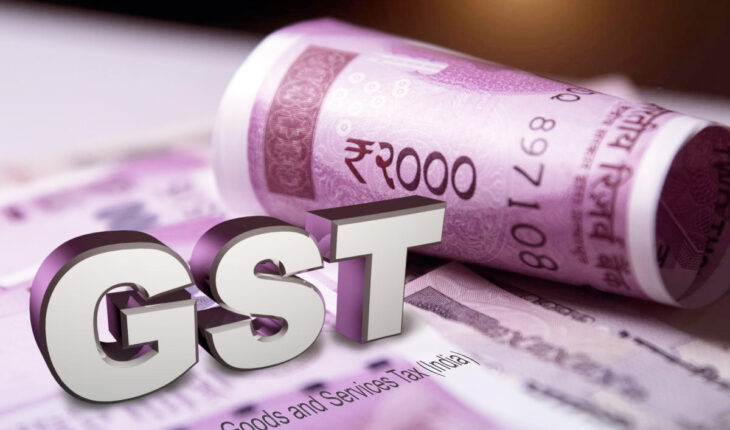Krishna Byre Gowda on how the Union govt has reduced fiscal resource capacity of the States
State governments drive a majority of the country’s development programmes. Greater numbers of people depend on these programmes for their livelihood, development, welfare and security. Varied economic growth and income levels across States confirm the primacy of State governments in the economic sphere as well. States need resources to deliver these responsibilities and aspirations. Unfortunately, the financial capacity of the States is structurally being weakened.
The ability of the States to expand revenue has been constrained since the Goods and Services Tax (GST) regime was adopted. The Centre’s resource mobilisation space vis-a-vis that of the States is now far greater. While both face a very challenging fiscal environment, the Centre, instead of finding mutually beneficial solutions, has repeatedly opted to undermine the current and future fiscal capacities of the States. It has systematically cut the share of States in taxes raised by the Union government (devolutions), it has reduced the pool of funds to be shared with the States by shifting from taxes to cesses and surcharges, and it is needlessly thrusting measly options to overcome the GST shortfall.
Finance Commissions recommend the share of States in the taxes raised by the Union government. Their recommendations are normally adhered to. But the current Union government has discarded this constitutional obligation. Prior to 2014, devolution of funds to the States were consistently and cumulatively more than 13th Finance Commission’s projections. The year 2014-15 commenced with a shock: actual devolution was 14per cent less than the Finance Commission’s projection. Subsequent devolutions have been consistently less every year, ending the period 2019-20 with a whopping -37per cent. Between 2014-15 and 2019-20, the States got `7,97,549 crore less than what was projected by the Finance Commission. This is an undeniable and substantial reduction of the fiscal resource capacity of the States.
Various cesses and surcharges levied by the Union government are retained fully by it. They do not go into the divisible pool. This allows the Centre to raise revenues, yet not share them with the States. Hence, the Union government imposes or increases cesses and surcharges instead of taxes wherever possible and, in some cases, even replaces taxes with cesses and surcharges. When taxes are replaced with cesses and surcharges, as has been done repeatedly by this government in the case of petrol and diesel, the consumer pays the same price. But the Union government keeps more of that revenue and reduces the size of the divisible pool. As a result, the States lose out on their share. Between 2014-15 and 2019-20, cesses and surcharges soared from 9.3per cent to 15per cent of the gross tax revenue of the Union government. This systematic rise ensures that the revenue that is fully retained by the Union government increases at the cost of the revenue that is shared with the States. In 2019-20 alone, the Union government expected `3,69,111 crore from cesses and surcharges. This will not be shared with the States. This government has exploited this route to reduce the size of the divisible pool.
GST shortfall
Shortfalls have been persistent and growing from the inception of GST. Compensations have been paid from the GST cess revenue. GST cesses are levied on luxury or sin goods on top of the GST. Such cesses have justification independent of compensation needs. These are, and will be, levied irrespective of compensation needs. GST compensation will end with 2021-22. But cesses will continue.
During 2019-20, the cess collected was `95,444 crore. With the abnormal exception of this year, the years ahead will generate similar or more cess revenue. This assured cess revenue, within the GST, can meet any contingency needs, even of an “act of God”, without burdening the Centre or the State governments. Hence, many States have been insisting outside and inside the GST Council that the Union government should borrow this year’s GST shortfall in full and release it to the States. The Union government will not have to pay a rupee of this debt or interest. The entire loan can be repaid out of the assured cess revenue that will continue to accrue beyond 2022. Of the nearly `3 lakh crore GST shortfall to the States, the Centre will only compensate `1.8 lakh crore. The States will not get the remaining `1.2 lakh crore this year. This cut is being imposed for no reason. In fact, it flies against the need of the hour to revive the economy. Governments ought to spend money this year to stimulate demand.
Apart from the streams discussed above, Central grants are also likely to drop significantly this year. For instance, `31,570 crore was allocated as annual grants to Karnataka. Actual grants may be down to `17,372 crore.
Due to the combined effect of cutbacks in devolution, the shrinking divisible pool, failure to pay full GST compensation this year and fall in Central grants, the States may experience a fall of 20per cent-25per cent in their revenues this year.
To overcome such extreme blows to their finances and discharge their welfare and development responsibilities, the States are now forced to resort to colossal borrowings. Repayment burden will overwhelm State budgets for several years. As we peer into the years ahead, after paying loans and interest, salaries and pensions, and establishment expenses, what will really be available for development and welfare?
The fall in funds for development and welfare programmes will adversely impact the livelihoods of crores of Indians. The economic growth potential cannot be fully realised. Adverse consequences will be felt in per capita income, human resource development and poverty. This is a negative sum game.
States are at the forefront of development and generation of opportunities and growth. Strong States lead to a stronger India. The systematic weakening of States serves neither federalism nor national interest.
The ability of the States to expand revenue has been constrained since the Goods and Services Tax (GST) regime was adopted. The Centre’s resource mobilisation space vis-a-vis that of the States is now far greater. While both face a very challenging fiscal environment, the Centre, instead of finding mutually beneficial solutions, has repeatedly opted to undermine the current and future fiscal capacities of the States. It has systematically cut the share of States in taxes raised by the Union government (devolutions), it has reduced the pool of funds to be shared with the States by shifting from taxes to cesses and surcharges, and it is needlessly thrusting measly options to overcome the GST shortfall.
Finance Commissions recommend the share of States in the taxes raised by the Union government. Their recommendations are normally adhered to. But the current Union government has discarded this constitutional obligation. Prior to 2014, devolution of funds to the States were consistently and cumulatively more than 13th Finance Commission’s projections. The year 2014-15 commenced with a shock: actual devolution was 14per cent less than the Finance Commission’s projection. Subsequent devolutions have been consistently less every year, ending the period 2019-20 with a whopping -37per cent. Between 2014-15 and 2019-20, the States got `7,97,549 crore less than what was projected by the Finance Commission. This is an undeniable and substantial reduction of the fiscal resource capacity of the States.
Various cesses and surcharges levied by the Union government are retained fully by it. They do not go into the divisible pool. This allows the Centre to raise revenues, yet not share them with the States. Hence, the Union government imposes or increases cesses and surcharges instead of taxes wherever possible and, in some cases, even replaces taxes with cesses and surcharges. When taxes are replaced with cesses and surcharges, as has been done repeatedly by this government in the case of petrol and diesel, the consumer pays the same price. But the Union government keeps more of that revenue and reduces the size of the divisible pool. As a result, the States lose out on their share. Between 2014-15 and 2019-20, cesses and surcharges soared from 9.3per cent to 15per cent of the gross tax revenue of the Union government. This systematic rise ensures that the revenue that is fully retained by the Union government increases at the cost of the revenue that is shared with the States. In 2019-20 alone, the Union government expected `3,69,111 crore from cesses and surcharges. This will not be shared with the States. This government has exploited this route to reduce the size of the divisible pool.
GST shortfall
Shortfalls have been persistent and growing from the inception of GST. Compensations have been paid from the GST cess revenue. GST cesses are levied on luxury or sin goods on top of the GST. Such cesses have justification independent of compensation needs. These are, and will be, levied irrespective of compensation needs. GST compensation will end with 2021-22. But cesses will continue.
During 2019-20, the cess collected was `95,444 crore. With the abnormal exception of this year, the years ahead will generate similar or more cess revenue. This assured cess revenue, within the GST, can meet any contingency needs, even of an “act of God”, without burdening the Centre or the State governments. Hence, many States have been insisting outside and inside the GST Council that the Union government should borrow this year’s GST shortfall in full and release it to the States. The Union government will not have to pay a rupee of this debt or interest. The entire loan can be repaid out of the assured cess revenue that will continue to accrue beyond 2022. Of the nearly `3 lakh crore GST shortfall to the States, the Centre will only compensate `1.8 lakh crore. The States will not get the remaining `1.2 lakh crore this year. This cut is being imposed for no reason. In fact, it flies against the need of the hour to revive the economy. Governments ought to spend money this year to stimulate demand.
Apart from the streams discussed above, Central grants are also likely to drop significantly this year. For instance, `31,570 crore was allocated as annual grants to Karnataka. Actual grants may be down to `17,372 crore.
Due to the combined effect of cutbacks in devolution, the shrinking divisible pool, failure to pay full GST compensation this year and fall in Central grants, the States may experience a fall of 20per cent-25per cent in their revenues this year.
To overcome such extreme blows to their finances and discharge their welfare and development responsibilities, the States are now forced to resort to colossal borrowings. Repayment burden will overwhelm State budgets for several years. As we peer into the years ahead, after paying loans and interest, salaries and pensions, and establishment expenses, what will really be available for development and welfare?
The fall in funds for development and welfare programmes will adversely impact the livelihoods of crores of Indians. The economic growth potential cannot be fully realised. Adverse consequences will be felt in per capita income, human resource development and poverty. This is a negative sum game.
States are at the forefront of development and generation of opportunities and growth. Strong States lead to a stronger India. The systematic weakening of States serves neither federalism nor national interest.
Krishna Byre Gowda is former Agriculture, Rural Development and Panchayat Raj Minister, Government of Karnataka. He was the Karnataka representative in the GST Council. Views expressed are his own






